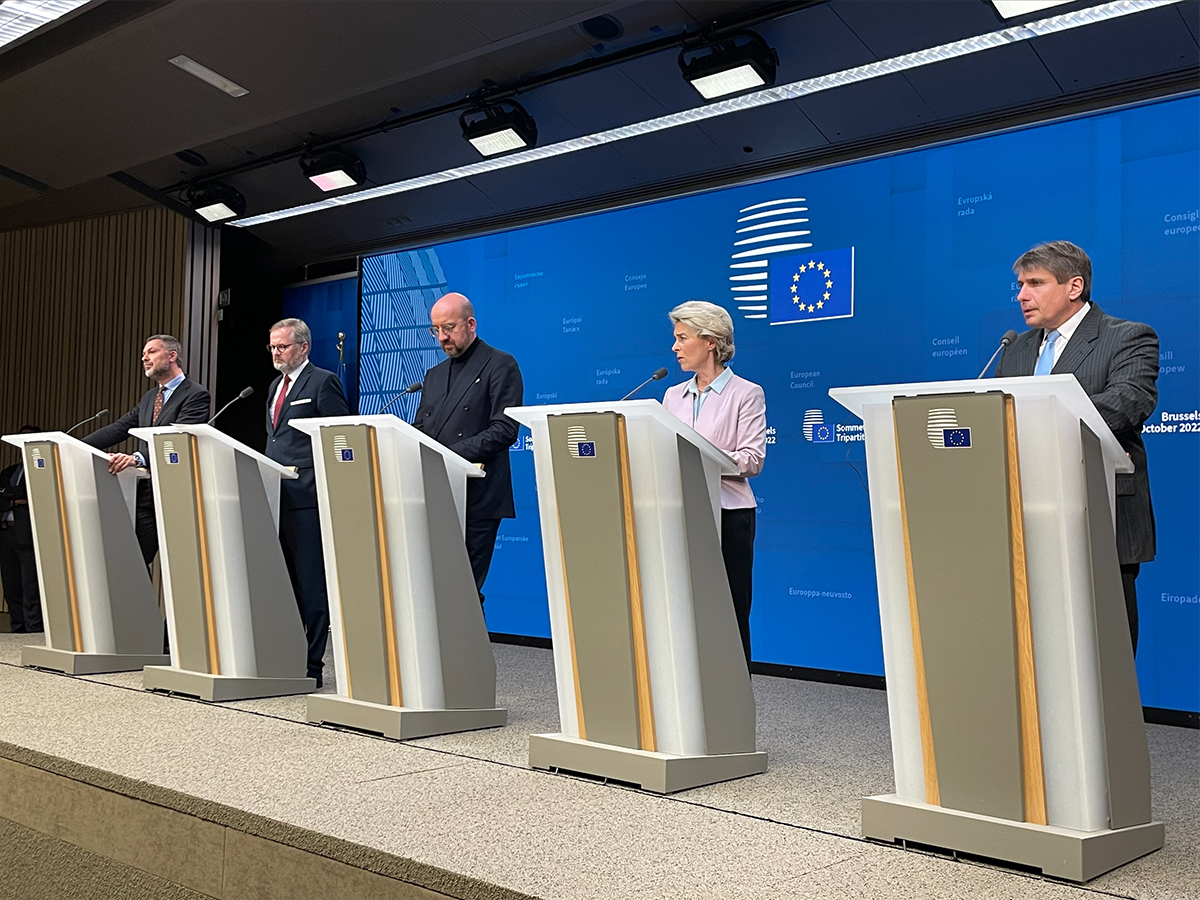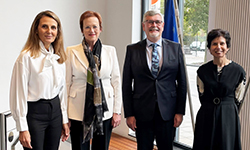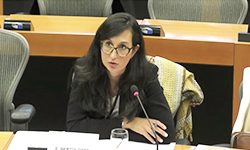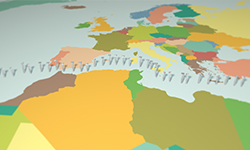BusinessEurope Headlines No. 2022-31
Tripartite Social Summit: EU leaders need to agree on EU-wide measures to alleviate energy costs

Speaking at the Tripartite Social Summit on 19 October, BusinessEurope's Director General Markus J. Beyrer highlighted that as energy bills are skyrocketing to levels never seen before, many European companies struggle for survival. “There is a real danger that energy-intensive businesses relocate outside of Europe”, he said. EU leaders, he added, need to agree urgently on new EU-wide measures to alleviate energy costs for European enterprises. If well designed, temporary EU-wide “price capping” measures such as decoupling electricity prices from gas prices would effectively lower the bills. Adjusting the EU temporary crisis framework while maintaining a level playing field on the single market is equally important to grant much-needed aid to affected enterprises. On labour markets, Beyrer stated that the key challenge is to address skills shortages. With these multiple crises, pursuing a “business-as-usual” legislative agenda is not an option. See the photo album.
Contact: Cerutti Maxime
Photo copyright: European Council
Trade diversification or “friendshoring” - how best to support the European economy
 On 13 October, a panel discussion on “Trade diversification or “friendshoring” - how best to support the European economy” was organised in the framework of BusinessEurope’s International Relations Committee meeting, with the participation of Caroline Millar, Australian Ambassador to the EU, NATO, Belgium and Luxembourg; Professor Simon Evenett from St. Gallen University; and Laurent Scheer, Vice President Global Public Affairs at Pernod Ricard. On adapting to a rapidly changing geopolitical and economic reality, the speakers stressed the need to adopt practical approaches to trade – trading with all but in a way that ensures trust in supply chains, as well as resilience and sustainability. They argued that diversification is key in this respect, more effective that the notion of “friendshoring”. Coordination among governments is necessary, focusing on their market-creating role, while businesses should also be ready to engage more. An open trade policy can contribute to this objective through trade agreements, in particular the ones that create opportunities for trade and investments, but are also important for broader strategic reasons, building bridges.
On 13 October, a panel discussion on “Trade diversification or “friendshoring” - how best to support the European economy” was organised in the framework of BusinessEurope’s International Relations Committee meeting, with the participation of Caroline Millar, Australian Ambassador to the EU, NATO, Belgium and Luxembourg; Professor Simon Evenett from St. Gallen University; and Laurent Scheer, Vice President Global Public Affairs at Pernod Ricard. On adapting to a rapidly changing geopolitical and economic reality, the speakers stressed the need to adopt practical approaches to trade – trading with all but in a way that ensures trust in supply chains, as well as resilience and sustainability. They argued that diversification is key in this respect, more effective that the notion of “friendshoring”. Coordination among governments is necessary, focusing on their market-creating role, while businesses should also be ready to engage more. An open trade policy can contribute to this objective through trade agreements, in particular the ones that create opportunities for trade and investments, but are also important for broader strategic reasons, building bridges.
Contact: Luisa Santos
Urgent need to adjust and prolong the Temporary Crisis Framework
 BusinessEurope Director General Markus J. Beyrer wrote to the European Commission Executive Vice-President Margrethe Vestager and the Commissioner for the Internal Market Thierry Breton to stress the need to prolong and adjust the Temporary Crisis Framework to temporarily enable Member States to grant much-needed aid to affected businesses whilst maintaining a level playing field. The Commission should define less restrictive eligibility criteria for energy cost compensation and prolong the framework until the end of next year. The current state of high gas and electricity prices bears the imminent risk of further production losses and shutdowns and the use of state aid plays an important role to mitigate the impact of skyrocketing energy prices.
BusinessEurope Director General Markus J. Beyrer wrote to the European Commission Executive Vice-President Margrethe Vestager and the Commissioner for the Internal Market Thierry Breton to stress the need to prolong and adjust the Temporary Crisis Framework to temporarily enable Member States to grant much-needed aid to affected businesses whilst maintaining a level playing field. The Commission should define less restrictive eligibility criteria for energy cost compensation and prolong the framework until the end of next year. The current state of high gas and electricity prices bears the imminent risk of further production losses and shutdowns and the use of state aid plays an important role to mitigate the impact of skyrocketing energy prices.
![]() Contact: Berggren Erik
Contact: Berggren Erik
Intellectual property: how to tackle challenges the online market brings
 On 12 October, BusinessEurope Senior Adviser Elena Bertolotto took part in the Renew Europe event “How to better protect consumers and foster IPR protection online”, in the European Parliament. She highlighted that the digital transformation has opened incredible opportunities for businesses and citizens, but has also raised new issues, especially when it comes to protecting intellectual property rights. “We need to join forces to tackle the challenges brought by the digital transformation. Both the private and public sectors should work together to ensure that the online marketplace remains a safe and lawful place for intellectual property owners and consumers”, Bertolotto stressed. She added that the burden of creating this safer environment on the online market must be shared. The debate, chaired by the Vice-President of the European Parliament MEP Dita Charanzová, featured the participation of the Adrián Vázques Lázara and the European Union Intellectual Property Office Executive Director Christian Archambeau, as well as European Commission and business representatives.
On 12 October, BusinessEurope Senior Adviser Elena Bertolotto took part in the Renew Europe event “How to better protect consumers and foster IPR protection online”, in the European Parliament. She highlighted that the digital transformation has opened incredible opportunities for businesses and citizens, but has also raised new issues, especially when it comes to protecting intellectual property rights. “We need to join forces to tackle the challenges brought by the digital transformation. Both the private and public sectors should work together to ensure that the online marketplace remains a safe and lawful place for intellectual property owners and consumers”, Bertolotto stressed. She added that the burden of creating this safer environment on the online market must be shared. The debate, chaired by the Vice-President of the European Parliament MEP Dita Charanzová, featured the participation of the Adrián Vázques Lázara and the European Union Intellectual Property Office Executive Director Christian Archambeau, as well as European Commission and business representatives.
Contact: Elena Bertolotto
High level of ambition needed for the revision of TEN-T Regulation
 Ahead of the informal meeting of transport ministers on 21 October, organised by the Czech EU Council Presidency, BusinessEurope urged transport ministers to increase the level of ambition when revising the regulation on the Trans-European Transport Network (TEN-T). It is crucial that the ambitions in the framework of the TEN-T meet the ones set out in the European Green Deal. The TEN-T is an important enabler for multi-modality in transport and logistics in the EU as well as for efficient and sustainable transport and mobility solutions. Moreover, reliable cross-border transport infrastructure is key for an effective and quick EU response to crises and the TEN-T is proving to be of fundamental importance in terms of safety and economic and supply security interests. The TEN-T must be considered as a lifeline which must remain open and operational, enabling the efficient and sustainable cross-border transport of goods and persons, also during times of crises and emergencies. BusinessEurope stands ready to discuss business priorities, which are outlined in our position paper.
Ahead of the informal meeting of transport ministers on 21 October, organised by the Czech EU Council Presidency, BusinessEurope urged transport ministers to increase the level of ambition when revising the regulation on the Trans-European Transport Network (TEN-T). It is crucial that the ambitions in the framework of the TEN-T meet the ones set out in the European Green Deal. The TEN-T is an important enabler for multi-modality in transport and logistics in the EU as well as for efficient and sustainable transport and mobility solutions. Moreover, reliable cross-border transport infrastructure is key for an effective and quick EU response to crises and the TEN-T is proving to be of fundamental importance in terms of safety and economic and supply security interests. The TEN-T must be considered as a lifeline which must remain open and operational, enabling the efficient and sustainable cross-border transport of goods and persons, also during times of crises and emergencies. BusinessEurope stands ready to discuss business priorities, which are outlined in our position paper.
![]() Contact: Michelle Marie Philipp
Contact: Michelle Marie Philipp
EU has to better integrate its trade and development policies
 “In reaction to supply chain disruptions and increased geopolitical risks, European companies will seek to become more resilient by diversifying their supply chains in the future. Due to its geographic proximity to Europe, this can create opportunities for Africa”, said Benedikt Wiedenhofer, Adviser in the international relations department of BusinessEurope, at the DG TRADE Dialogue with the European private sector on Economic Partnership Agreements (EPAs) on 19 October. The event was an occasion to discuss opportunities, constraints, and needs that European businesses face when investing in or trading with EPA countries, particularly in Africa. The aim of the European Commission’s department for trade (DG TRADE) was to get a better idea of how to support EU businesses operating in EPA regions. “However, the EU will need to better integrate its trade and development policies in order to maximise the potential African countries present to European traders and investors”, Wiedenhofer highlighted. On the one hand, he added, the EU will need to modernise its trade agreements with the continent while supporting the negotiation and implementation of the African Continental Free Trade Area. On the other hand, capacity building, technical assistance and other measures will need to be deployed to help African governments improve their investment climate and increase the sustainability of their economies.
“In reaction to supply chain disruptions and increased geopolitical risks, European companies will seek to become more resilient by diversifying their supply chains in the future. Due to its geographic proximity to Europe, this can create opportunities for Africa”, said Benedikt Wiedenhofer, Adviser in the international relations department of BusinessEurope, at the DG TRADE Dialogue with the European private sector on Economic Partnership Agreements (EPAs) on 19 October. The event was an occasion to discuss opportunities, constraints, and needs that European businesses face when investing in or trading with EPA countries, particularly in Africa. The aim of the European Commission’s department for trade (DG TRADE) was to get a better idea of how to support EU businesses operating in EPA regions. “However, the EU will need to better integrate its trade and development policies in order to maximise the potential African countries present to European traders and investors”, Wiedenhofer highlighted. On the one hand, he added, the EU will need to modernise its trade agreements with the continent while supporting the negotiation and implementation of the African Continental Free Trade Area. On the other hand, capacity building, technical assistance and other measures will need to be deployed to help African governments improve their investment climate and increase the sustainability of their economies.
Contact: Benedikt Wiedenhofer
Position paper on Debt Equity Bias Reduction Allowance
 BusinessEurope's position paper on the European Commission’s draft directive for a Debt Equity Bias Reduction Allowance (DEBRA), published this week, welcomes the European Commission’s efforts to put equity financing on a more equal tax footing compared to debt financing, but warns that, in its current form, DEBRA risks placing European companies at a competitive disadvantage compared to those in other regions, in terms of the deductibility of interest payments. The DEBRA proposal lays down rules for the tax deductibility of notional interest on increases in equity and to limit the tax deductibility of exceeding borrowing costs, allowing EU companies to have access to diversified sources of financing. BusinessEurope’s recommendations propose to make equity financed investments more attractive by providing a more generous allowance on corporate equity with no change to interest deductibility to truly stimulate investment and growth in these challenging times.
BusinessEurope's position paper on the European Commission’s draft directive for a Debt Equity Bias Reduction Allowance (DEBRA), published this week, welcomes the European Commission’s efforts to put equity financing on a more equal tax footing compared to debt financing, but warns that, in its current form, DEBRA risks placing European companies at a competitive disadvantage compared to those in other regions, in terms of the deductibility of interest payments. The DEBRA proposal lays down rules for the tax deductibility of notional interest on increases in equity and to limit the tax deductibility of exceeding borrowing costs, allowing EU companies to have access to diversified sources of financing. BusinessEurope’s recommendations propose to make equity financed investments more attractive by providing a more generous allowance on corporate equity with no change to interest deductibility to truly stimulate investment and growth in these challenging times.
![]() Contact: Mariella Caruana
Contact: Mariella Caruana
Calendar 
- 7-18 November: United Nations Climate Change Conference 2022 (UNFCCC COP 27)
- 15-16 November: G20 Bali Summit
- 16-17 November: European Business Summit
- 17 November: The Unitary Patent system – a game-changer for innovation in Europe
Not yet a subscriber? Register here.
Reminder: please have a look at our privacy policy